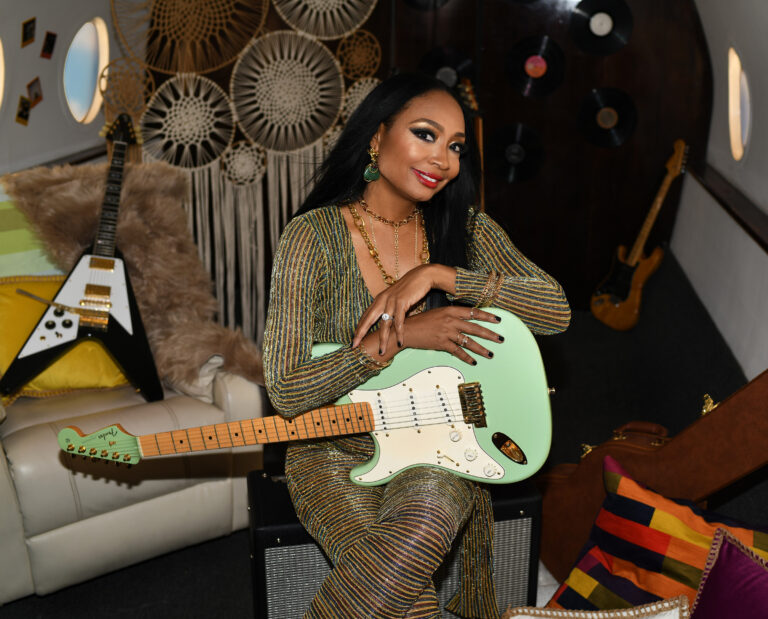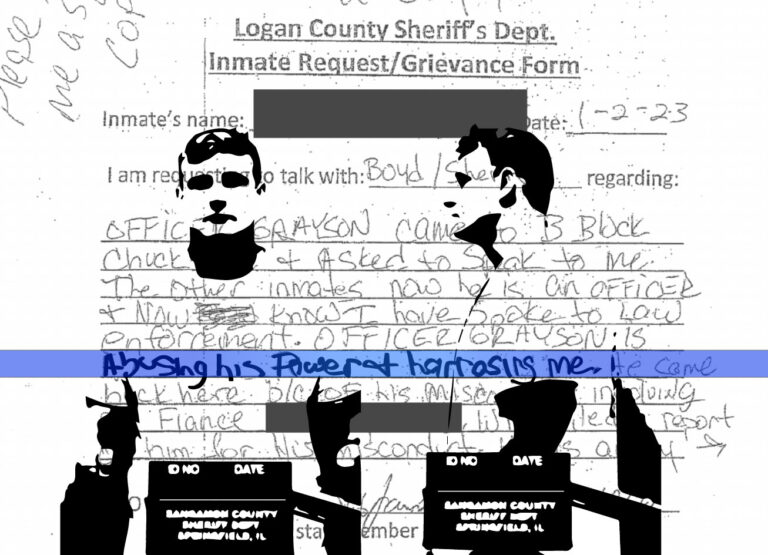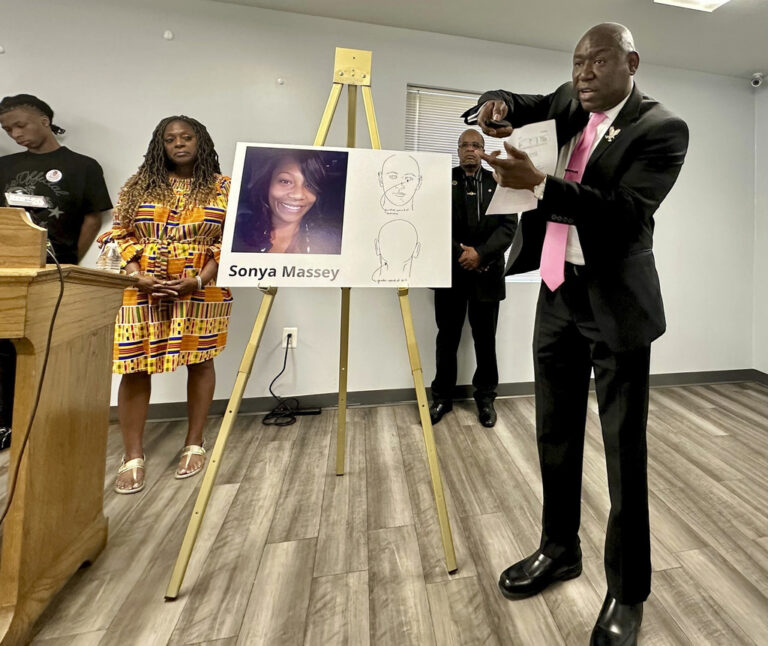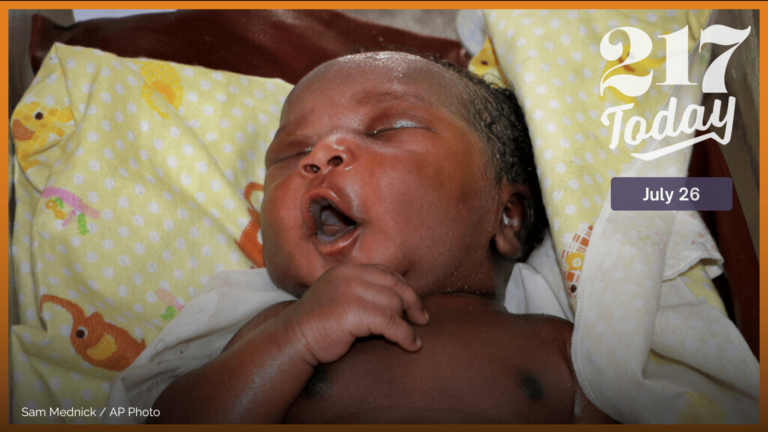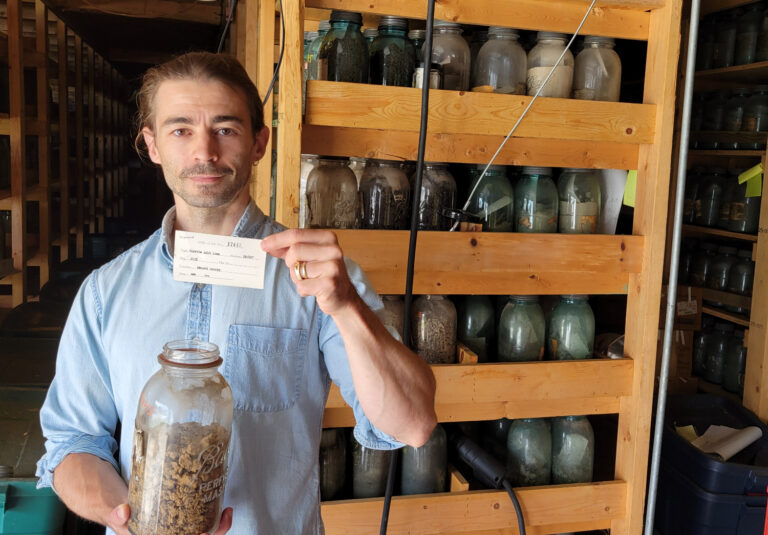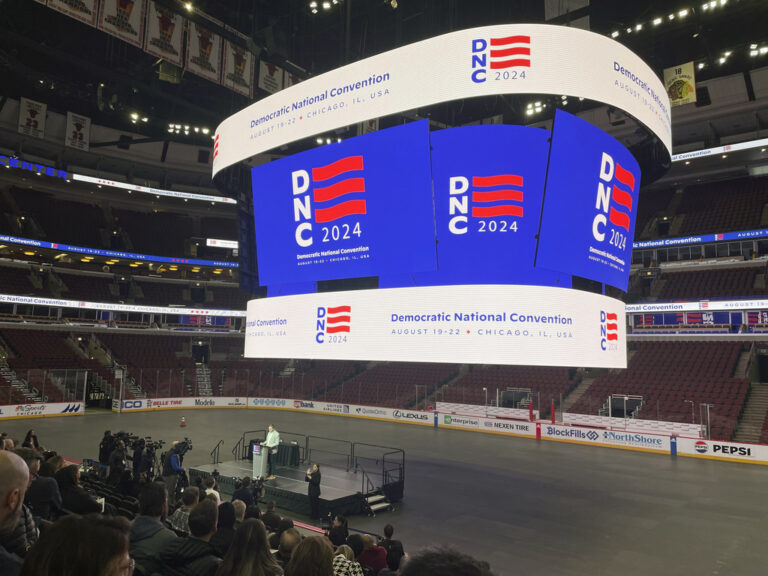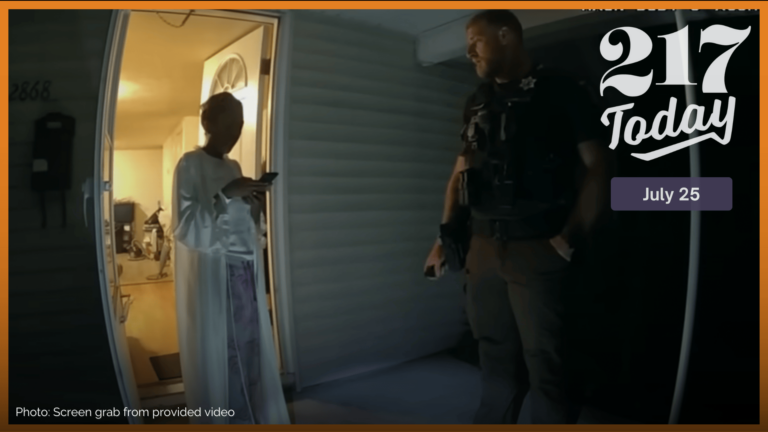URBANA – Singer-songwriter Malina Moye is opening Ellnora, The Guitar Festival at the Krannert Center for the Performing Arts in Urbana. She will play the National Anthem on her guitar on Friday, September 8. The next day at 1:30 p.m., Moye will discuss her transition from living unhoused in Los Angeles to releasing her first number one album. Before arriving in Champaign-Urbana, she spoke with IPM News Morning Edition host Kimberly Schofield.
Schofield: Malina, you have so much that you’ve done in your career. You were the first African American woman to perform the national anthem on guitar at the Minnesota Vikings and Dallas Cowboys game back in 2010 and you came from a family of musicians. And when you were little, I know your dad, Dr. Funk, which I don’t know that you called him that as a kid…
Moye: No, you know, we call him dad.
KS: I know that he gave you a guitar. So, my question is twofold. One, what was that experience like when you got that guitar from him? And then two, was that the moment or was there another moment where you realized that you also wanted to pursue music as a career?
MM: I specifically remember my dad basically gave me a guitar and this is the first time he gave it to me. I said, “I don’t like this.” I couldn’t play it. And then when he left the room, I took the guitar, and I flipped it upside down and started playing it backwards. And when he came back then he was like, “This is backwards.” I was like, “Yeah, but this feels really good.” Yeah, I’m a natural left-handed person. So, he gave it to me like a right-handed player and it just wasn’t working for me. So, you know, a few years later, he gave it to me, I picked it up, left the room, I turned it upside down. I was like, “This fits perfect. I love this. This is incredible.” And I just was off to the races ever since that moment. And I think for me, just seeing my mom. My mom is a singer and plays percussion. And then watching my mom and my dad on stage. You know, as a kid, my mom would always tell me that I couldn’t speak, but I was always trying to sing. And I would grab the mic and I would just make a fake stage and try to perform. So, I always knew this is what I wanted to do.
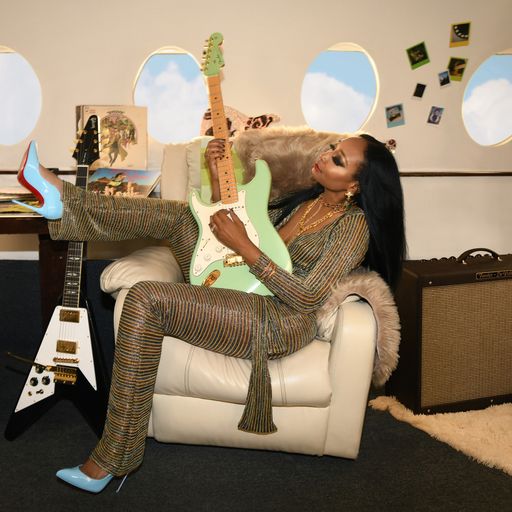
KS: Malina you’re opening Ellnora Guitar Festival with the National Anthem. Tell us what else people can expect to see.
MM: I’m going to open the festival. But then they were like, “Hey, we know about your movement, the hashtag, ‘I’m enough.’” On Saturday, I’m going to speak a little bit about what it was like to come to Los Angeles with $20. And I was homeless, I lived on the street. Literally, I would wash up in gas stations and live off of two tacos and water a day. And I would park my car in places you weren’t supposed to park and put clothes over my head. And I’d have a knife and a Bible. And I would say, “Don’t tow. Car broken.” Speaking about the experience, coming from that, looking on the ground, putting pennies together, taping them up to eat, because I just believe in my goal and my vision that much. And then finally being able to score my first number one record.
KS: I mean, already going to LA with absolutely nothing and coming up to where you are now is amazing. But have there been any other roadblocks that have really stuck out to you?
MM: Absolutely. What’s so funny is… in life, as you find the one thing that you love… and for me, being a guitar player and being Black, being a woman, being a left-handed guitar player who plays upside down… I already have three things. In the beginning, to me, this seems normal. I never look at myself as anything other than what any other guitar player would look at themselves as. And what happens is, the higher up you go, you start to realize that a lot of women, and for me specifically, I say a lot of African American women haven’t been in certain spaces. And it’s not because we don’t want to be in these spaces. It’s because these opportunities did not exist.
And even so that was the reason why I truly wrote the song “Enough” was because I started seeing all of this media and I’m like, “Man, this is just so not fair.” You put all these different people on these covers, but when I’m looking inside, I haven’t seen one Black woman that you have on the cover of this magazine. To be fair, this particular magazine, they put this woman on the cover, and I thought, “This is amazing,” right? And then I remember looking inside and I thought, “Oh my god. You list one person and everybody else is dead.” The way you’re seeing the vision of what’s happening in America -in the world- in my mind, it was like you’re not being fair to everyone. And the way I see it. I’m like, “I put the same amount of time in as these other people that you’re highlighting. We’re all playing the same notes, we have access to the same thing.” But I just kept realizing, it has nothing to do with my talent. It is the fact of the DNA of America and the DNA of what people are accustomed to. And I thought, “Well geez, what if I wrote a song? Maybe if this guy heard how I was feeling and understood how he is not being fair, maybe I could change his heart and then he would change his mind. And then he would open the door and give more of us opportunity.”
KS: It certainly sounds like you’re not afraid to put yourself out there. In the music video for your song, “F.I.N.E,” you have this striking, beautiful outfit. It’s set against this American flag. The music video seems to take us all across the country. Tell me about this video.
MM: That song is a song where I said, “Hey, you know what, let’s try something different. Let’s do an instrumental.” So many different elements in that video that I wanted to project and that I wanted to talk about. First of all, the song’s called “F.I.N.E.” And the reason I came up with this title was because during the pandemic, I just felt like we all had come through so much. And my dad would always say, “Malina, how are you doing?” And I always would say, “Oh, Dad, I’m fine, I’m fine.” And he would say, “Oh, I see you’re still F’ed up, insecure, neurotic, and emotionally unstable.” It’s funny, but then I’m like, “I guess he kind of has a point.” Because we’re going up and down. There’s so much happening right now, we don’t know what’s going on. So the best way I could just put my feelings out there, I thought, was, “I’m going to play. I’m gonna take you on a journey.” So when we did the video, the video idea was to take you through a journey of America and to show you the beauty that we have. And then also for me, there were elements of the clothes, what I wanted to project – and thank you for picking that up – is with the durag. Back in the day, they would classify African Americans to separate us by putting on certain things on our heads because they were saying that we weren’t beautiful. It was a way just to hide our hair. But I wanted to project it as something that is an absolutely beautiful piece that we want to use to project beauty and to add another dimension to us and to take away the stigma of what people generally thought of it. And also, when you look at the colors, I can’t tell you how many times people always say to me, “Gosh, Malina, you know, you’re a really good guitar player. Are you wearing these clothes because you’re trying to make people not listen to you because you’re trying to hide the fact that you might not be good or something?” I’m a woman and I love these clothes. So I’m all about “do you.” That is a space that I want to share and show: as a woman we can look like a woman…whatever the lipstick, the makeup, the diamonds, just be unapologetically yourself. And as I like to say just for me, hopefully just exude just, “I’m here. And I’m not going anywhere.”
KS: Malina, you sound like a trailblazer in this industry. Is there any advice that you would give to young Black girls? They sometimes get pigeonholed into thinking that singing is the only opportunity they have in the arts and entertainment world What would you say to them?
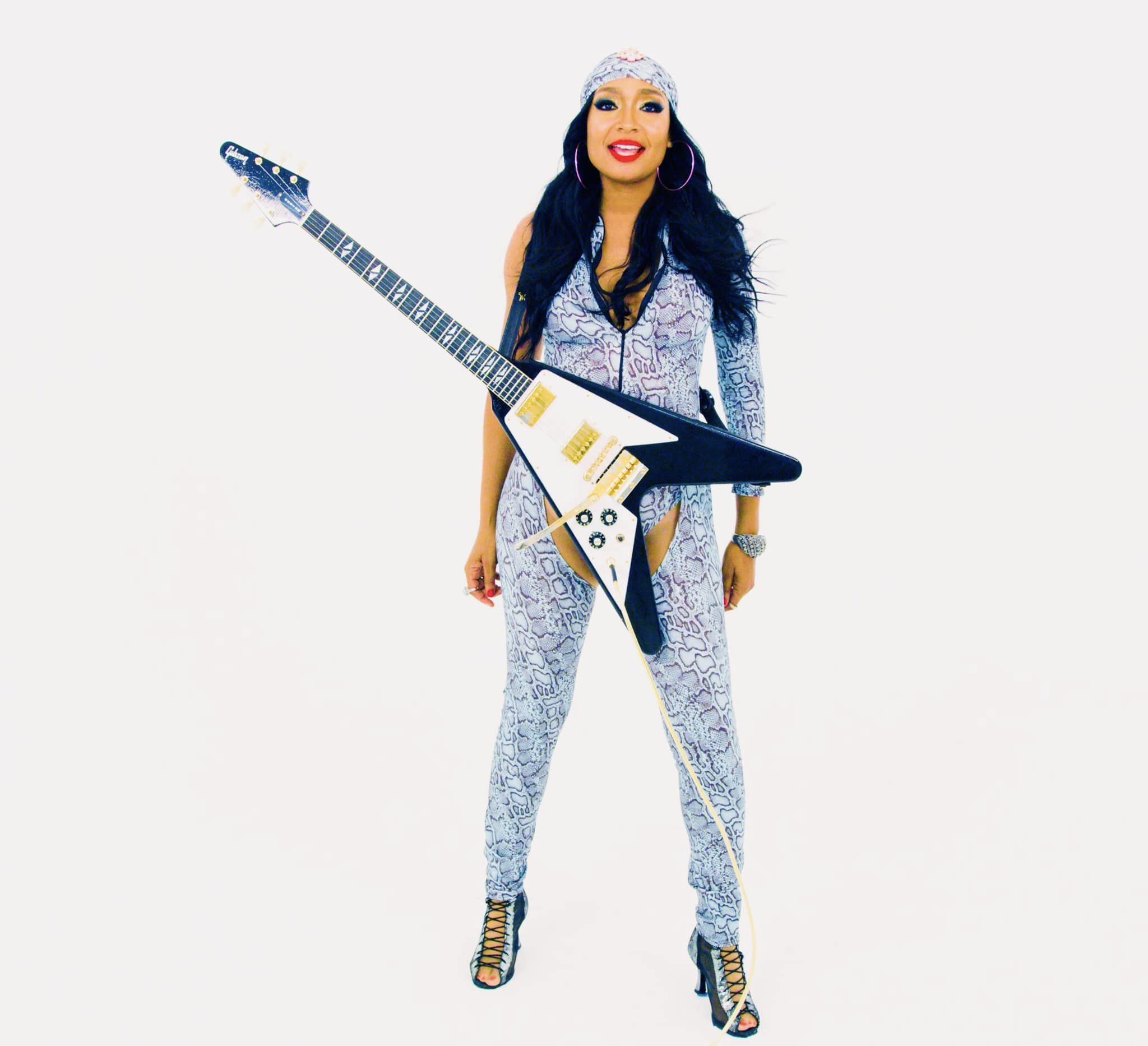
MM: When I’m speaking to my sisters, I would say just know that no matter what, people are always going to want to count you out. Just know that. Which is why I always say this, the thing that my parents said to me, “When you don’t see yourself represented, show up. When you think you can’t, show up. And always know you matter and you count.” Your main job is to show up and do the best delivery of what you can do even if that makes other people feel uncomfortable. Even if that makes other people feel like this makes no sense. You need to go do it. Be happy, throw it away and move on.
KS: Thank you so much, Malina.
MM: Thank you, Kimmy, for having me. It’s such a pleasure. And my dad always says this to me: “Opportunity has a slick way of coming through the back door and is often described as temporary defeat or misfortune. Perhaps that is why so many fail to recognize opportunity.” And I say that to say that whoever is listening, if there’s something that you really, really, really, really felt that you should have had and that you wish did, but you didn’t get, you should be grateful that you didn’t get it because now you are available for what the universe has in store for you. So don’t sweat it and I’m a firm believer that blessings literally will chase you down.
Singer-songwriter and lefty guitarist Malina Moye is opening the Ellnora, The Guitar Festival at Krannert Center for the Performing Arts on Friday, September 8. Krannert Center for the Performing Arts is an underwriter of Illinois Public Media.

